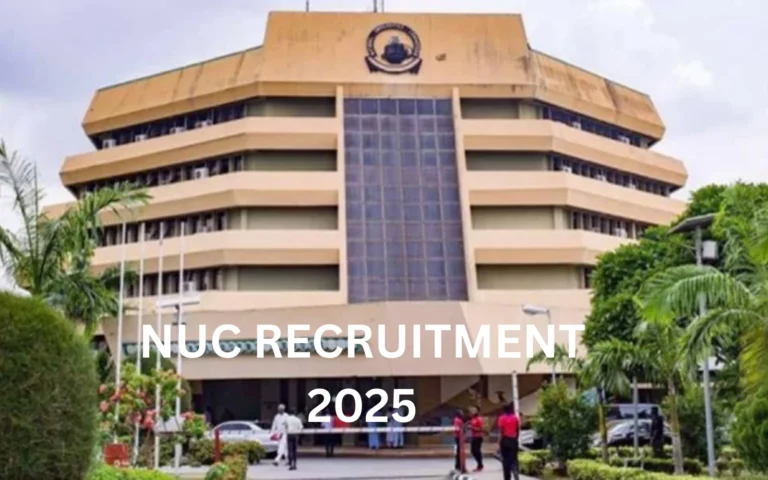
Working and schooling feels like trying to solve a Rubik’s cube while riding a unicycle, challenging, exhausting, and seemingly impossible.
If you’re reading this with coffee-stained textbooks scattered around your workspace and a work schedule that makes your head spin, you’re not alone.
In this article, we will discuss best practices to follow while juggling work and schooling.
The Foundation: Setting Realistic Expectations
Before diving into tactics, let’s address the elephant in the room: you cannot do everything at 100% intensity. Something has to give, and that’s not failure, it’s physics. The sooner you accept this reality, the faster you can make intentional choices about where to focus your energy.
Start by defining what success looks like for you. Maybe it’s maintaining a 3.5 GPA while working 25 hours a week, or perhaps it’s completing your degree in five years instead of four while gaining valuable work experience. There’s no universal definition of “having it all,” so create your own.
Time Management: Your Secret Weapon
The Time Audit Reality Check
Most people have no idea where their time actually goes. For one week, track every hour. Yes, including that time you spent scrolling social media “for just five minutes.” This exercise often reveals 10-15 hours of reclaimed time hiding in plain sight.
The Power of Time Blocking
Forget basic to-do lists. Time blocking assigns specific activities to specific time slots, treating your study time with the same respect as your work shifts. Block out time for classes, work, study sessions, meals, and even rest. When 2-4 PM is designated “Organic Chemistry review,” it becomes non-negotiable.
The Two-Minute Rule
If a task takes less than two minutes, do it immediately. Reply to that email, file that document, or schedule that appointment. This prevents small tasks from accumulating into overwhelming mountains.
Workplace Navigation for Students
Let your Boss know you are schooling.
A lot of students hide their student status at work, fearing it makes them seem less committed. In reality, transparency often works in your favor. Employers who know you’re a student may offer flexible scheduling, remote work options, or even tuition assistance. Frame your dual commitment as evidence of your ambition and time management skills.
Maximizing Work-Study Synergy
Seek work opportunities that complement your academic goals. Marketing majors might pursue social media roles, while psychology students could work in counseling centers. This alignment makes both experiences more valuable and reduces the mental load of context switching.
Setting Professional Boundaries
Master saying no to extra shifts during finals week or major project deadlines. Good employers understand that supporting your education ultimately benefits them through your increased skills and loyalty.
Academic Strategies That Work
Strategic Course Selection
All courses are not the same. When necessary, choose courses that complement your work schedule. Some students thrive with early morning classes before work, while others prefer evening sessions. Consider online or hybrid options for maximum flexibility, but be honest about your learning style, some subjects require in-person engagement.
The Art of Active Learning
Working students can’t afford to waste study time on passive reading. Employ active learning techniques like the Feynman Technique (explaining concepts in simple terms), spaced repetition, and practice testing. These methods are more effective than highlighting and re-reading, helping you learn faster and retain more.
Building Strategic Relationships
Cultivate relationships with professors, classmates, and academic advisors. They can provide extensions during busy work periods, share notes when you miss class, and offer guidance tailored to your unique situation. Most professors appreciate students who communicate proactively about their challenges.
The Energy Management Game
Time management gets the spotlight, but energy management often matters more. You might have eight hours blocked for studying, but if you’re running on three hours of sleep and pure caffeine, those hours won’t be productive.
Protect Your Peak Hours
Identify when you’re naturally most alert and focused. For many people, this is the first few hours after waking. Guard these peak hours fiercely and use them for your most challenging academic work.
The Recovery Principle
High-intensity periods require equally intentional recovery. After finals week or a major work project, schedule genuine rest time. This isn’t laziness, it’s maintenance that prevents burnout and maintains long-term performance.
Technology: Your Digital Support System
Calendar Integration
Use one calendar system that includes everything: work shifts, class schedules, study blocks, and personal commitments. Google Calendar, Apple Calendar, or specialized apps like Notion can sync across devices and send reminders. Utilize artificial intelligence like ChatGPT, Google Gemini, and Claude for summarizing complex topics and breaking them down.
Note-Taking
Instead of copying unending notes, you can take pictures of note summaries with your smartphone and use them on the go. Apps like Notion, Obsidian, or even simple voice memos can capture ideas and information on the go. The key is choosing one system and sticking with it rather than scattered notes across multiple platforms.
Task Management
Find a system that works for you, whether it’s a simple notebook, apps like To-do-list or Asana, or the Getting Things Done methodology. The best system is the one you’ll actually use consistently.
Financial Wisdom for Working Students
Budget Like Your Future Depends on It
Track every dollar with the same intensity you track your time. Many working students fall into the trap of lifestyle inflation, spending more because they’re earning more. Remember that your current earnings likely represent your lowest lifetime earning potential.
The Emergency Fund Non-Negotiables
Aim for at least $1,000 in emergency savings, even if it means living on ramen for a few months. This fund prevents financial emergencies from derailing your academic progress.
Strategic Debt Management
If you’re taking on student loans, treat them as an investment in your future earning potential. Understand the terms, explore forgiveness programs, and avoid unnecessary borrowing for lifestyle expenses.
- JAMB News Today, 30th December, 2025: JAMB Sets First Quarter of 2026 for UTME Registration
- The 2025 WASSCE for School Candidates’ certificates are now available for Access: WAEC Announces
- Registration for 2026 CB-WASSCE For Private Candidates Ongoing – WAEC Confirms
- I Asked ChatGPT, Grok, and Gemini to Suggest 5 Holiday Passive Income Ideas for students – Here are my Best Picks
- NYSC Announced Printing and Distribution of 2025 Batch “C” Certificates of Exemption to Corps Producing Institutions Nationwide
Health and Wellness: The Non-Negotiables
Sleep as a Strategic Asset
Seven hours of sleep isn’t a luxury, it’s a requirement for cognitive function, emotional regulation, and physical health. Sacrificing sleep for study time often backfires through decreased productivity and increased errors.
Nutrition for Performance
Eating well on a tight budget and tighter schedule requires planning. Meal prep on weekends, focus on protein and complex carbohydrates for sustained energy, and avoid the vending machine trap that drains both your wallet and your energy.
Exercise
Exercise doesn’t require a gym membership or hours of time. Even 10-15 minutes of daily movement, walking between classes, taking stairs, or doing bodyweight exercises can significantly impact your energy levels and stress management.
Build Support Network
Family and Friends
Let your love ones understand your schedule and plans. They can’t support what they don’t understand. Be specific about when you’re available and when you need uninterrupted focus time.
Join Study Groups
Connect with other working students who understand your challenges. Virtual study groups can provide flexibility, while accountability partners help maintain motivation during tough periods.
Professional Resources
Take advantage of campus resources like counseling services, tutoring centers, students’ affairs, and career counseling. These services are included in your tuition, so use them strategically.
Crisis Management – When Everything Falls Apart
Despite your best planning, crises will happen. Your car breaks down the week before finals, you get sick during a major work project, or family emergencies demand your attention. Having a crisis management plan prevents these situations from derailing your long-term goals.
The Triage Method
When overwhelmed, use medical triage principles: address the most critical issues first, postpone what can wait, and eliminate what isn’t essential. This might mean requesting an extension on a paper to meet a work deadline, or vice versa.
Communication Protocols
Establish communication templates for common crisis situations. Having pre-written emails for requesting extensions, calling in sick to work, or rescheduling appointments saves mental energy during stressful times.
The Long-Term Perspective
Remember that this intensive period is temporary. Most students who work while attending school do so for 2-4 years, not decades. Keeping this timeline in perspective helps maintain motivation during particularly challenging periods.
Career Integration
Network Building
View your current work experience as career preparation, not just a means to an end. The skills you’re developing, time management, stress tolerance, and communication are highly valued by employers and will serve you throughout your career.
Your current classmates and colleagues are your future professional network. Maintain relationships even when you’re stretched thin, as these connections often prove precious years later.
Measuring Success and Adjusting Course
Regular Check-ins
It’s important to schedule monthly reviews of your systems and strategies. What’s working? What isn’t? Where are you feeling overwhelmed? These regular assessments allow for course corrections before small problems become major crises.
Celebrate Your Little Wins
Acknowledge your achievements, no matter how small. Completing a difficult semester while working full-time deserves recognition. These celebrations provide motivation for continued effort.
Flexibility Over Perfection
Your ideal schedule will need constant adjustment. Embrace flexibility as a strength, not a weakness. The ability to adapt quickly to changing circumstances is a valuable life skill that extends far beyond your student years.
The Finish Line: Graduation and Beyond
Remember, the skills you’re developing as a working student, time management, stress tolerance, communication, and adaptability are exactly what employers seek in new graduates. You’re not just earning a degree; you’re building a competitive advantage in the job market.
Many working students worry they’re not getting the “full college experience.” But consider this: while your classmates are developing academic knowledge, you’re developing academic knowledge plus real-world experience, financial literacy, and professional skills. You’re not missing out, you’re getting ahead.
The juggling act you’re performing now is preparing you for the complexities of adult life, where maintaining a work-life balance, managing multiple responsibilities, and allocating resources effectively are daily realities. You’re not just surviving this period, you’re building the foundation for long-term success.
Your Next Steps
Success in balancing work and school isn’t about finding perfect balance—it’s about making intentional choices that align with your values and goals. Start with one or two strategies from this guide, implement them consistently for at least two weeks, and then gradually add more systems as they become habits.


